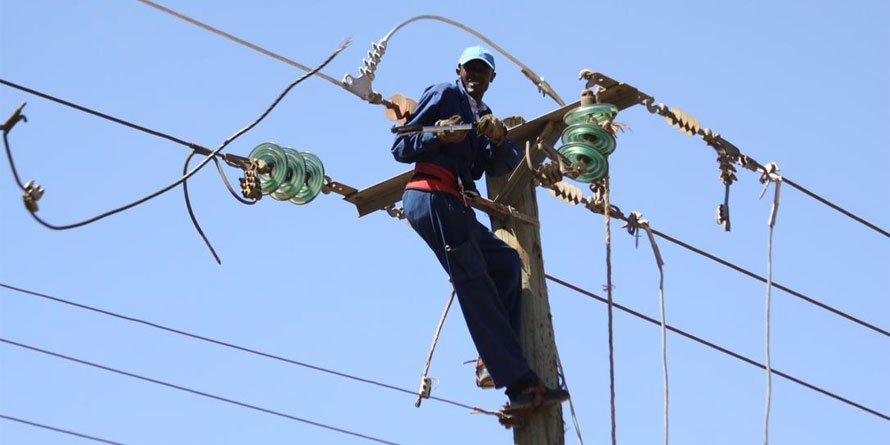Kenya Power staff at work. FILE PHOTO | NMG Kenya is set to declare wholesale power supply contracts null and void following a drop in demand in the wake of the global Covid-19 pandemic, setting the stage for a crisis in the electricity market that could hurt supply.
The Ministry of Energy says that it will declare force majeure on power generation contracts, which technically means that Kenya will not be bound by the existing pacts on payment of electricity from the more than 10 power producers.
A declaration of force majeure excuses a company from contractual agreements when an extraordinary event that is beyond its control occurs.
The Ministry argues that restrictions imposed to limit the spread of Covid-19 like night curfew had reduced demand for electricity, making it difficult for Kenya Power to afford the energy without increasing retail prices.
Power generators, on the other hand, argue that the reduction in their earnings will hurt their financial muscle and jeopardise their commitment to supply adequate electricity to Kenya Power, which could lead to unstable supply to both homes and businesses.
Some have demanded that the government offer proof that it is effectively impossible to perform its contractual duties as a result of the coronavirus pandemic.
Energy Secretary Charles Keter told the Business Daily that the ministry had resorted to force majeure after consumption plunged with the closure of factories and hotels in the wake of the pandemic.
“We may not be able to meet the take or pay conditionality under some of the PPAs and there is a need that they come back to the negotiation table to enable us reach an agreement,” Mr Keter said.
“Demand is down and yet we still have to maintain the transmission and distribution network as well as expand to the areas we have not sufficiently served. We have started writing to them to invoke the force majeure based on demand”.
The clause known as take-or-pay compels Kenya Power to buy the agreed amount of electricity regardless of whether or not the utility needs the energy.
Demand for electricity dropped 15.3 percent to 645.29 million kilowatt-hours (kWh) in April as the global coronavirus pandemic hit consumer demand and forced firms and industries to cut back on their operations.This has left Kenya Power with nearly 203 million kWh of power that was produced by the generators, but which it did not need following the drop in demand. Despite this, the electricity distributor […]
